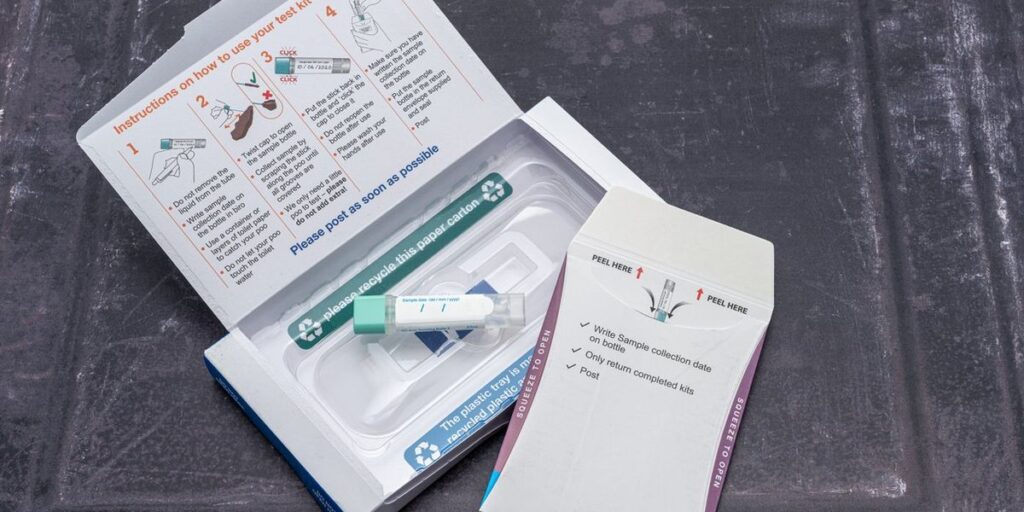Medically reviewed by Ayanna Lewis, M.D.
Getting screened is one of the simplest ways to decrease your threat of colon most cancers, a illness that impacts 1 in 25 women and is the second-leading cause of most cancers dying in ladies below 50.
The excellent news — notably for many who actually dread the thought of a colonoscopy — is that there are lots of strategies of screening for colon most cancers, and a few of them might be accomplished from the consolation of your individual dwelling. However with all of the testing choices obtainable, how have you learnt which one to decide on?
Understanding the various kinds of colon most cancers screening might assist you determine which one is greatest for you.
Why is colon most cancers screening so vital?
Colon most cancers typically takes about 10 years to develop. For most individuals, it begins when a gene mutation impacts one of many cells that line your colon. This mutated cell divides and grows, forming a clump of cells referred to as a polyp.
Whereas many polyps are benign (non-cancerous), some might ultimately flip into most cancers. Screening helps to seek out polyps earlier than they’ve an opportunity to turn out to be cancerous.
It will possibly additionally spot most cancers that has already began within the early levels, when it’s simpler to deal with. The 5-year survival rate of individuals with early stage colorectal most cancers is round 90% however drops to round 13% if the most cancers has unfold to different elements of the physique.
The present recommendation is that individuals with a mean threat of colon most cancers begin screening at age 45.
Are some teams at increased threat?
In line with the American Cancer Society, Black individuals in the USA are 20% extra more likely to get colorectal most cancers — and 40% extra more likely to die from it — than different racial teams. Genetic variations, life-style components and environmental components account for a few of the disparity, however different causes embody lack of entry to healthcare and the dearth of capacity to pay for healthcare.
Specialists are working to assist shut this hole, organizing community-based efforts, such because the Colorectal Cancer Screening Intervention Program (CCSIP) to boost consciousness and make screening extra accessible.
What’s a colonoscopy, anyway?
A colonoscopy is an outpatient process the place a physician makes use of a tiny video digicam connected to an extended, versatile tube to test the colon for most cancers, in addition to polyps and different crimson flags, corresponding to irritated tissue.
The tube is inserted into the rectum whereas the affected person is sedated, and there’s no ache throughout or after the process.
A serious good thing about the colonoscopy is that medical doctors don’t simply search for probably problematic polyps — they will additionally take away them. And in case your outcomes are regular, you received’t want one other colonoscopy for 10 years. This is the reason colonoscopy is taken into account the “gold customary” for colon most cancers detection.
A colonoscopy comes with the identical small risks (corresponding to bleeding and an infection) as any medical process, however the advantages outweigh the potential hurt for many sufferers.
What are the opposite screening choices for colon most cancers?
There are a couple of totally different screening choices that contain utilizing an at-home check equipment that search for indicators of most cancers.
- The guaiac-based fecal occult blood check (gFOBT) makes use of a chemical referred to as guaiac to seek out blood within the stool. You get a check equipment out of your physician and use it at dwelling to gather a pattern that’s examined in a lab. This check is completed annually.
- The fecal immunochemical check (FIT) makes use of antibodies as a substitute of guaiac to detect blood within the stool, however in any other case it’s the identical because the gFOBT.
- The FIT-DNA check, corresponding to Cologuard, (also called the stool DNA check) is the FIT plus one other check that checks for modified DNA within the stool. For this check, a complete bowel motion is collected at dwelling and despatched to a lab. It’s accomplished at the least each three years.
Blood-based assessments for colon most cancers, corresponding to Protect, are newer choices that can be utilized by individuals of common threat.
Another choice is a versatile sigmoidoscopy, which is actually a restricted colonoscopy that solely checks the rectum and decrease third of the colon for polyps or most cancers. It’s accomplished each 5 years.
A process referred to as a computed tomography (CT) colonoscopy (or digital colonoscopy) makes use of a CT scan to take photos of the colon, making it much less invasive than the normal colonoscopy. It’s accomplished each 5 years.
It’s vital to notice that if any of those screenings come again optimistic or irregular, you’ll want a standard colonoscopy.
However for individuals who’d simply as quickly keep away from a colonoscopy — or are having a tough time getting an appointment due to a backlog — these screenings are a lot higher than nothing.
Which colon most cancers screening choice is greatest?
Very similar to train, the “greatest” colon most cancers screening is the one you’ll really do. You’ll must take your private well being and insurance coverage state of affairs into consideration, so it’s a good suggestion to speak by way of your choices with a healthcare supplier.
If value is a priority, the Colorectal Cancer Alliance and Colonoscopy Assist might help you discover free or low-cost screenings close to you.
This academic useful resource was created with assist from Daiichi Sankyo.
From Your Website Articles
Associated Articles Across the Net
